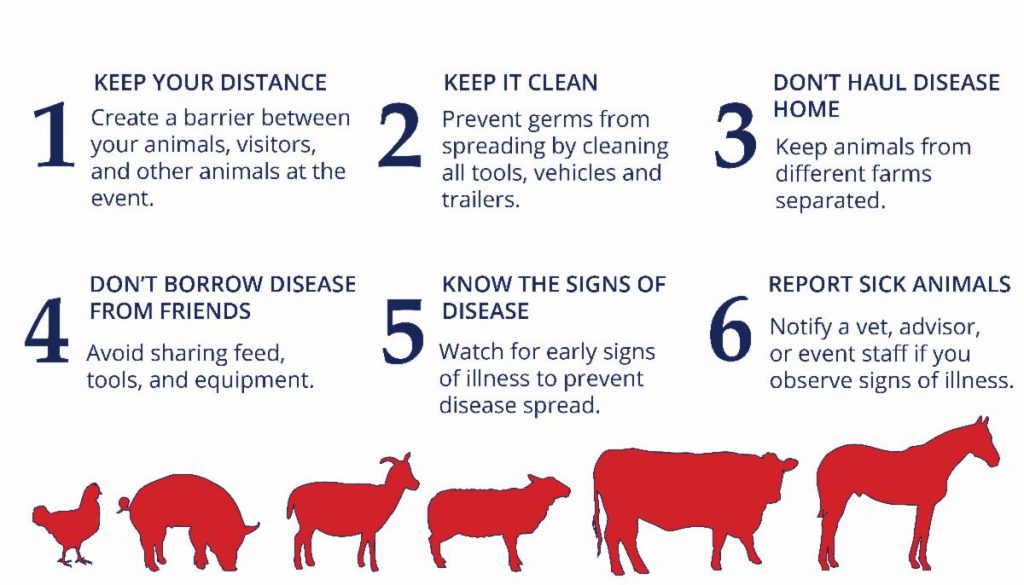Source: Texas Animal Health Commission | Jan. 29. 2020
Keep your animals healthy before, during, and after livestock shows. Establishing and following sound biosecurity practices is the cornerstone for reducing the risk of spreading diseases. Practicing good biosecurity means doing everything you can to reduce the risk of disease being carried from or back to your farm.
Before you leave for an event…
Work with your veterinarian to develop a preventative health plan.
- Plans may include vaccinations or other cautionary measures.
Ensure animals are healthy, and document it
- Secure a Certificate of Veterinary Inspection (CVI) from your vet. Decide to leave animals showing clinical signs of disease at home.
Prepare supplies
- Clean and disinfect all equipment. Inspect your livestock trailer to make sure it is safe and in good operating condition. Gather enough feed and hay for your animal to have during the event.
During a stock show event…
Maintain good documentation and monitoring.
- Keep copies of health certificates, vaccination records and tests results organized and on hand.
- Watch your animals closely for signs of illness and immediately report symptoms.
Maintain boundaries with other animals and exhibitors
- Don’t share equipment with others unless it has been cleaned and disinfected between use.
- Avoid contact with other animals and do not enter their pens. If contact is unavoidable, be sure to wash your hands and shoes frequently.
Keep your animals comfortable.
- Provide plenty of fresh water and feed. Do not allow manure to contaminate your animal’s feed, water or hay.
- Keep unused feed and hay covered to reduce risk of contamination.
- Watch your animals closely for signs of illness and immediately report symptoms.
After a stock show event…
Clean up well.
- Properly dispose of leftover bedding, hay, and feed at the event facility or off your farm.
- Clean and disinfect all equipment returning home prior to leaving the event facility.
Monitor your livestock closely.
- Keep livestock show animals isolated from other animals on the farm for a minimum of 14 days.
- Carefully look for signs of illness in isolated animals.

